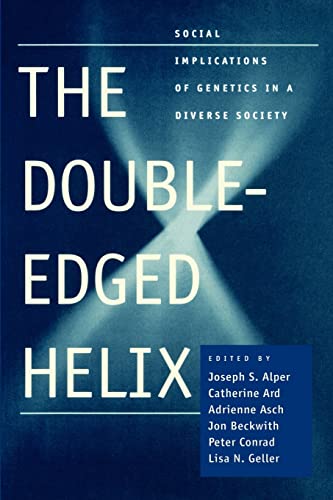The Double–Edged Helix: Social Implications of Genetics in a Diverse Society (Bioethics)
The Double–Edged Helix: Social Implications of Genetics in a Diverse Society (Bioethics) is backordered and will ship as soon as it is back in stock.
Couldn't load pickup availability
Genuine Products Guarantee
Genuine Products Guarantee
We guarantee 100% genuine products, and if proven otherwise, we will compensate you with 10 times the product's cost.
Delivery and Shipping
Delivery and Shipping
Products are generally ready for dispatch within 1 day and typically reach you in 3 to 5 days.
Here is the product description based on the provided details:
Book Details
-
Author: Alper
-
Publisher: Johns Hopkins University Press
-
Language: English
-
Edition: Not mentioned
-
ISBN: 9780801879265
-
Pages: 304
-
Cover: Paperback
-
Format: Import
-
Release Date: 21-04-2004
-
Package Dimensions: 8.9 x 6.0 x 0.8 inches
About the Book
The Double-Edged Helix by Alper provides a thought-provoking examination of the societal and medical impacts of recent genetic discoveries. Delving into the ethical and medical ramifications of genetic research, the book explores how these technologies affect various population groups, including minorities, individuals with disabilities, and those from diverse sexual orientations.
In this work, the authors present a balanced view by highlighting both the potential benefits and dangers of genetic research. It is a crucial text for anyone interested in the ethical dimensions of science and technology, particularly as it pertains to genetics and its application in society.
The book emphasizes the importance of ensuring that advancements in genetic research do not lead to discrimination based on an individual’s genetic makeup. Through a series of perspectives, The Double-Edged Helix calls for a careful and inclusive approach to the future of genetics to avoid marginalizing vulnerable groups.





